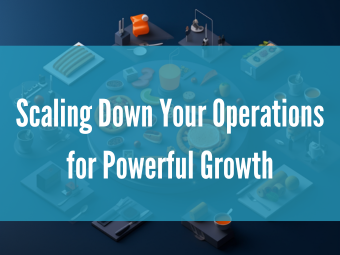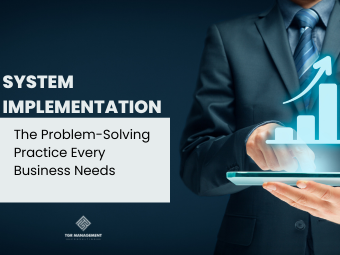
Here’s are some sobering statistics: as of 2023 the amount of food waste in the United States is estimated to have been around 30-40%. At the same time, it is estimated that 34 million people, including 9 million children, are food insecure. In 2021, 53 million people turned to food programs for assistance.
Looking at these numbers can make our heads spin. How is this possible?
It made me reflect on my own habits. Food waste happens to even the most careful of consumers. Especially those who are trying to feed a family. We’ve all over-bought at some time or another. There are myriad reasons this can happen: hunger shopping, changes in plans, buying in bulk because of a sale – etc.
But if a few pieces of broccoli go to waste at the consumer level, imagine the potential scale of this problem at the producer level. Every wasted piece of broccoli means lost money – not just from the unsold vegetable but also from the wasted resources like water, soil nutrients, labor, and energy used to grow it. This issue goes beyond food waste, transforming into a major financial problem for producers. The more waste, the more money is lost.
But what if what was once seen as “wasted broccoli” was instead viewed as an opportunity for businesses to tighten their processes, reduce waste, and enhance their financial efficiency?
We had the privilege of speaking with Alexandra White, co-founder and co-director of ProduceGood, who took this premise of turning waste into an opportunity and took it one step further: turning surplus in our food supply into a lifeline for those communities struggling with food access.
In 2014, Produce Good transformed this idea into action. Originating from a simple practice of recovering excess produce from backyards and farms, the initiative has grown exponentially. Today, ProduceGood collects excess produce with the help of 3600 volunteers and distributes it to over 80 partners who feed food-insecure individuals in San Diego County.
And they did it by scaling down their operations.
Changing Tactics
When faced with problems, sometimes our instinct is to throw everything we have at them. But often, this isn’t the best strategy. You burn through time, energy, and resources as you attempt to maintain operations and execute a change. Alexandra and her team didn’t do this. They had something else up their collective sleeve.
It’s important to note here that they didn’t attempt to build and fly a plane simultaneously. They shut down for 2 weeks to determine the safest way forward. And this is where things get really interesting. Not only did they weather the storm with their smaller-scale solution: they increased their efficiency.
This mirrors the approach of many successful businesses. They often find that downsizing or decentralizing their operations can increase efficiency and growth, much like larger businesses leveraging smaller, specialized partners for agility and quick engagement.
Let’s pause to appreciate some positive numbers – 1.3 million lbs of produce rescued and 3.9 million servings of food provided to those in need. These figures are a testament to the organic growth ProduceGood has experienced since its inception. But how did they do it?
The “Quick Pick” Strategy
Instead of large groups harvesting from extensive orchards, social distancing requirements led the team to embrace a “quick pick” strategy. This involved 1-3 volunteers, often picking fruit from their local neighborhoods. In our conversation with Alexandra, she noted this is something they had been considering for a while. The pandemic proved the perfect reason to implement – and it was a great strategy.
The result? Smaller groups, more frequent picks, fewer miles traveled, and paradoxically, MORE produce recovered. But, while the individual operations were scaling down, they did have something very big backing them up.
This scenario highlights how businesses can respond creatively to resource limitations. Like the “quick pick” strategy, businesses can decentralize operations and harness local, often overlooked resources. This may involve forming smaller, agile teams responsive to local market changes or identifying untapped resources within their community. Such adaptations can increase efficiency, reduce costs, and create sustainable business models.
Cultivating a Community Around Technology
Partners, growers, and volunteers organically rallied around the cause, primarily through word-of-mouth and local apps like Neighborhood and Next Door. They used the technology to ensure their community remained engaged and operations continued.
When I heard this, I couldn’t help but be reminded how many businesses have integrated gig workers into their operations. They’re tapping into existing communities of freelancers or small businesses, often brought together by digital platforms. These platforms serve as the “local apps” for the global community, connecting businesses with the resources they need, fostering communication, and ensuring continuity of operations.
It’s safe to say, thanks to technology, scaling down your operations has never been easier or more rewarding.
Harnessing the Power of Data to Drive Impact
ProduceGood may have a vast community, but its core team isn’t that. Their small core team grew from 3 in 2021 to 5 in 2022, and each of those 5 individuals is crucial in ensuring ProdcueGood runs smoothly.
They meticulously monitor their operations and analyze data. They have frequent meetings to address problems quickly and efficiently. This process nurtures a deeper connection among the team and offers valuable insights that drive their mission. It’s a great example of successfully running a small remote team. At the end of the day, when you can’t physically be present, accurate information and clear communication are key to success.
Of course, this is easy to do with 5 people, but as we saw with Lasagna Love, with the correct systems in place, moving information vertically and horizontally can be just as effective at a larger scale.
Overcoming Hurdles and Cultivating Future Growth
When COVID-19 struck, ProduceGood faced significant challenges, from an immovable 3000lbs of oranges to overwhelmed food banks. But true to their ethos, they rallied, and by tapping into smaller resource centers, they successfully distributed the produce.
ProduceGood is not the first operation to experience growth by pivoting to simpler strategies. Netflix is a great example of this – they moved from storing, packing, and shipping thousands of DVDs to focusing on digital streaming. Nothing to store or to ship – just data that needed to be streamed. Chipotle also pivoted its operations during the pandemic by adding a drive-thru pickup lane. Just more proof that smaller, elegant solutions can result in strong long-term growth.
Think about what you had to change to pivot before the pandemic. How can you lean into more of that for the next leap in growth? Most companies had to expand virtual platforms, making information easier to access remotely. With AI at the top of everyone’s mind, the next great evolution in operations is already upon us. It may be a good idea to start reflecting now on how you can implement it into your business or make these new tools available to your customers as well.
Regardless of how you handle the next big change, it may be a good idea to start thinking smaller.
Tiffany Rosik is the Founder and CEO of TGR Management Consulting, a company specializing in implementing technology strategies for Fortune 1000 companies and non-profit organizations alike. Tiffany goes beyond project best practices by coaching Project Team Leaders on team dynamics and techniques to establish a self-sustaining model that creates a consistent experience and produces results. Connect with or follow Tiffany Rosik on LinkedIn.




